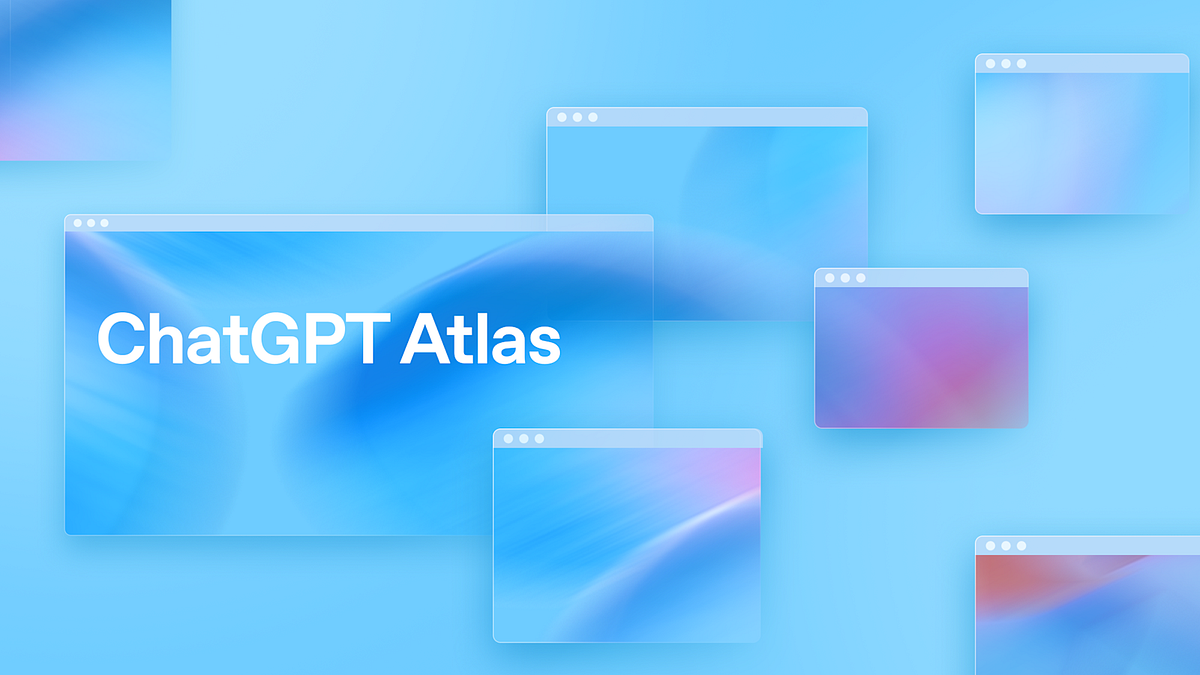Imagine opening your web browser and, instead of wrestling with tabs, menus, and search boxes, a helpful assistant sits quietly at your side. It watches what you’re doing, asks how it can help, remembers how you like to work — and sometimes even takes the wheel. That’s the promise behind ChatGPT Atlas.
A New Kind of Browser
In October 2025, OpenAI officially launched ChatGPT Atlas for macOS users worldwide.
Unlike traditional browsers, where you type or click your way to content, Atlas embeds ChatGPT directly into the browser interface. Ever want a paragraph summarised, a document edited, or an entire process done for you? Instead of switching to a separate chatbot, you simply ask within the browser.
Atlas brings together three key pillars: browsing, chat, and task automation — also known as “agent mode.”
What It Can Do
Here are some of the standout features:
- ChatGPT sidebar — While visiting any web page, you can open a dedicated sidebar where the AI can summarize the page, analyse content, compare options, or rewrite selected text.
- Memory & personalisation — Atlas can remember your preferences, past tasks, and browsing style. The result: over time, the assistant “learns you.”
- Agent mode — For subscribers, Atlas includes a preview of a more autonomous mode where the AI can take multi-step actions: say you want to research a flight, book a hotel, or create an itinerary — it can navigate, compare, click, and build a result.
- Cross-platform roadmap — At launch, only the macOS version is available; Windows, iOS, and Android versions are coming soon.
Why It Matters (and Who It Challenges)
Atlas places the AI chat interface front and centre. This changes the dynamic: instead of typing a search query to find a webpage, you may simply ask the assistant what you need — and it may bring it to you. The move is seen as a direct challenge to traditional browsers and search engines.
For productivity-centric users who switch between searching, writing, summarising, emailing, and editing, Atlas promises to reduce friction. It also redefines how we interact with the web — shifting the focus from navigation to conversation.
By owning more of your browsing workflow and context, OpenAI may be positioned to capture more of the value that browsers and search engines historically held.
The Flip Side: Privacy, Security & Unanswered Questions
For all its promise, Atlas raises important flags:
- Memory = Data — While Atlas allows the browser to remember things about you (if you enable it), this also means more of your browsing behaviour, tasks, and preferences end up in the system. The trade-off between convenience and privacy is real.
- Security risks — AI-enabled browsers may be vulnerable to hidden commands embedded in web content, tricking the agent into performing unintended actions.
- Early feedback mixed — Some users say the sidebar can feel clumsy, with suggestions that are sometimes generic rather than perfectly contextual.
- Adoption challenge — Convincing users to switch from their trusted browser is non-trivial. The “AI-browser” concept is still new territory.
What This Means for You (and For Businesses)
If you publish articles, run websites, or work in knowledge workflows, Atlas opens ways to rethink your process:
- You could integrate the assistant into how you research: open multiple tabs, ask the sidebar to summarise and distil into bullet-points, then refine your draft — all inside the browser.
- For brands and content creators, less tab-hopping may mean fewer clicks to your site — so you may need to rethink how you deliver value to keep your content engaging.
- For professionals, the ability to automate multi-step tasks (forms, sourcing, compliance checks) could reduce overhead — but be cautious, as AI agents still make mistakes and need supervision.
Verdict: Worth Trying — but with Eyes Open
ChatGPT Atlas is impressive in vision: a browser where the intelligence is built in, not bolted on. If it works smoothly, it may speed up many of the “boring” steps of browsing, researching, and editing.
But right now it’s relatively early: only on macOS, and with some UX quirks and unresolved security questions. The best approach is to install it, experiment with low-risk workflows like reading and summarizing articles, keep your default browser for sensitive tasks, and watch how its memory and agent features evolve.
Exploring the evolving dialogue between humans and artificial minds.
From neural networks and prompt engineering to digital philosophy and the ethics of intelligence — Digital Cortex is where data learns to think and creativity becomes computational.Here, technology isn’t just coded — it’s contemplated.
